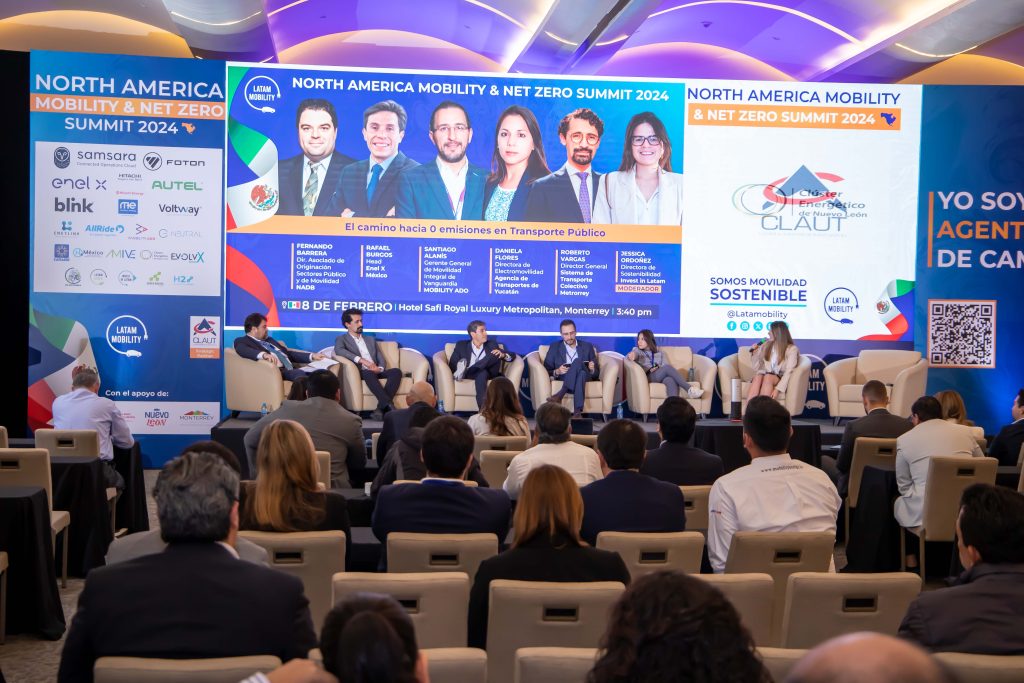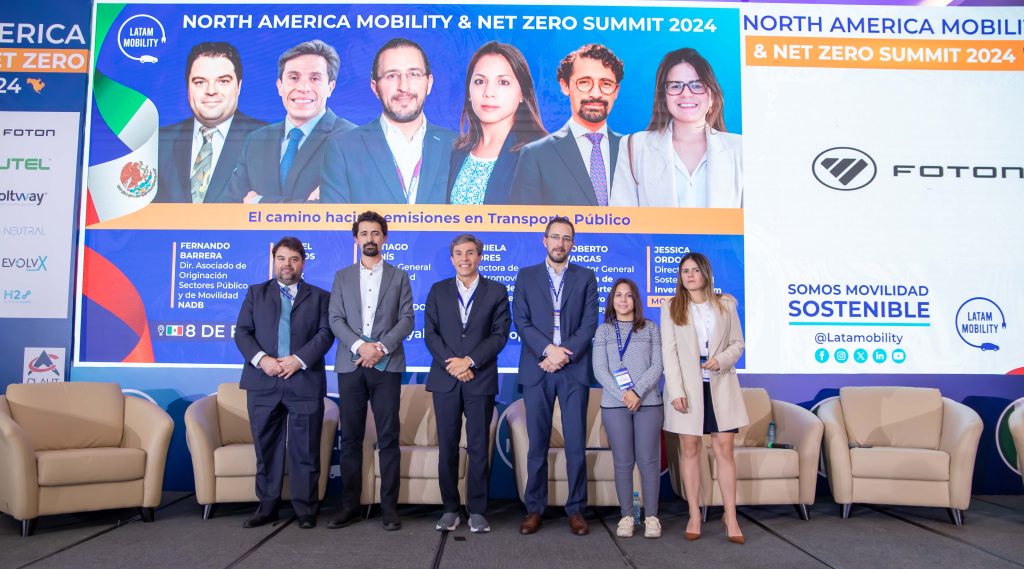The road to zero emissions represents great challenges and opportunities in Latin America. In this regard, the “Latam Mobility: North America & Netz Zero Summit” featured top-level panelists on the subject.
Fernando Barrera, Associate Director of Financial Services, Business and Public Sectors at the North American Development Bank (NADB), emphasized that they are an international organization with 30 years of experience and a “green vision by vocation”.
“We have a specific mandate to finance environmental border structure with plans such as the water cycle, solid waste management, basic mobility, roads, public transportation financing, and two years ago we expanded the mandate to mobility,” he explained.
He assured that mobility has become a vital aspect and Mexico has an inclusive, safe national strategy with comprehensive systems that are aligned with the Paris 2030 agenda against the greenhouse effect.
Barrera pointed out that sustainability goes through environmental, social and governance principles that are measurable and quantifiable to contribute to reduce emissions and add to Mexico’s commitments as a country.
“We are committed and aligned with sustainable financing,” he concluded.
Related content: Element Fleet, Hitachi Energy, Heineken and Samsara Present Range of Fleet Management Solutions
Enel’s Leadership
Rafael Burgos, Head of Enel X Mexico, highlighted the company’s great expertise in the generation, transmission, distribution and commercialization of electricity with a focus on renewable sources.
He also highlighted that they lead hydro and wind projects, becoming the first renewable generator in Mexico. “Enel X is dedicated to electrification, the use of electric energy for different types of services such as mobility, residential and commercial”.
He detailed that they are also focused on integrated public and private electric power systems, solar panels, energy efficiency, intelligent lighting systems and digitalization systems, remote monitoring, among others.
“The primary source has to be renewable, it goes hand in hand with electric mobility systems, zero generation of pollutants in the atmosphere, total integration of these systems in transportation,” said the Enel X executive.

Mobility ADO’s Experience
Santiago Alanís, General Manager of Mobility ADO‘s State-of-the-art Integral Mobility, highlighted that they are a Mexican company with more than 84 years in transportation, specializing in recent years in urban transportation with presence in Mexico, Central America and Spain.
“In Spain, we have the best practices through Mobility Ado Ciudades, we are the consulting arm, designer and operator of routes for governments,” he explained.
In addition, he said that the road to decarbonization is not only about electrification, but the challenge is to get the user out of the private car and onto public transport as a novel, safe and sustainable solution.
“A bus in Mexico City can fit 160 passengers, which is equivalent to taking 40 cars off the streets and putting them in 100% electric transport,” he said.
He revealed that they are working on high-tech buses based on nitrogen and electricity.
Public Sector Importance
Daniela Flores Ramírez, Electromobility Director of the Yucatan Transportation Agency, highlighted at the Latam Mobility meeting, the importance of the public sector as a presenter of service solutions for citizens.
“The most important thing is to build a sustainable financial model. Everything that was done in Yucatan was a work with concessionaires and changing the transportation model to generate incentives to attract companies to make investments,” she explained.
“We are a public service that seeks to guarantee the welfare and availability of routes for citizens,” she said.
Flores pointed out that the great challenge is to find a profitable business model for large multinational companies to invest in the electromobility area.
Metrorrey’s Impact
Roberto Abraham Vargas Molina, General Manager of Sistema de Transporte Colectivo Metrorrey, detailed that they develop a great logistics that consists of operating the metro in the metropolitan area and feeder buses.
“We feed toll systems and other routes here in Monterrey, we have incorporation of electric buses to the public transportation system, we are building three electric subway lines with 70% of energy coming from biogas,” he explained.
Vargas pointed out that the goal is for 100% of the energy to be clean, concentrated in the lines, putting the industrial seal on the process with local carriers and helping them make the transition and buses with local content.
“We work with Enel, but the operator is Dinamismo Urbano, they are our partners. Metrorrey supplies energy to this route, we help to make the financial model more viable and they will be assembled here at the Marcopolo plant, being a purely Mexican product,” he concluded.




